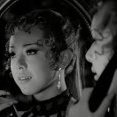Leaderboard
Popular Content
Showing content with the highest reputation on 11/25/18 in all areas
-
3 pointsOne of the weirder moments for me was when Rock's starts seeing for the first time and he laments that all he can see are "wrinkly butts." Setting aside that he doesn't know what eyes are but immediately knows what butts are - and the adjective "wrinkly," apparently - I thought it was really weird that the mama dog makes sure to immediately clarify for him that the wrinkly butts he's seeing aren't hers ("They're not mine. They're your brothers and sisters.") I don't know, it seems like an oddly defensive stance to take with a newborn child.
-
2 pointsAs a parent, I just want to say the "I'm going to get pine cones" is a ploy I would 100% use. Like if I was with my kids and I thought I heard someone trying to break in, I might say something like, "I'm going to check if we have enough cheese sticks in the fridge" or something so I could go check it out. Kids have a tendency to follow you if you don't tell them exactly what you're doing. And since you're an adult and obviously have everything all figured out, they don't question it if you say you're going to do something kind of dumb - which you most likely will since you're probably pretty nervous. The pine cone thing gets her out of the car, allows her to take a breath without panicking the kids, get her bearings, and figure shit out without kids under foot asking a million questions. Even better, she can actually bring back pine cones and say they are going to make Christmas ornaments or something to keep them occupied and set their mind at ease that their mother isn't in the middle of a panic attack.
-
2 pointsI agree. As much as I complain about his character, his use as a plot device makes the storytelling more interesting. This was a major trend in Oscar bait films from the 80s, to tell their story across a wider time period instead of staying tethered to more or less a moment in time. (I'm looking at you, Gandhi, Terms of Endearment, Amadeus, Out of Africa, The Color Purple, The Last Emperor, and Driving Miss Daisy, all Best Picture winners except Purple.) I think the difference in storytelling method is why I like Sophie's Choice and Amadeus better than the rest of these. I realize that you're not suggesting that the whole story be told linearly like the bulk of these films were, but I rather like that the entirety of Sophie's relationship with Nathan up to that point is summed up relatively briefly, and I think there are diminishing returns in going back earlier to see it. Exactly, and this is one of the tropes I was trying to describe: https://tvtropes.org/pmwiki/pmwiki.php/Main/FirstPersonPeripheralNarrator
-
2 pointsThe hiding part was partially in response to seeing people discuss whether she's deceptive and machiavellian. I hadn't listened to the episode yet and assumed the issue of lying (possibly by omission) about her father being in support of the Final Solution was brought up (and the perceived general shifting of support of him changed as she changed the story), and not just the notion of strategic fainting and trying to seduce a gestapo officer at the request of another inmate... Boy, I'll just say, I don't think it's uncommon to have your eyes open after you faint (reference to the podcast), but are still too light-headed and weak to get up. Though I think I'm more befuddled by Amy thinking Sophie and Nathan having a "passionate, tumultuous" romance, well, in a positive way. Because I guess Nathan was passionate and tumultuous. I was just fully expecting Sophie to end up with bruises and possibly a black eye during the movie. But maybe more on that later.
-
1 pointIn the episode, the gang seemed shocked that Alley's character couldn't find a new job outside of Santa's Elf - especially because it was "tax season." Except, the movie takes place during November/ December. Tax season is between January and April. I think it's very possible, even with her family connections, accounting firms might freeze hiring during their off seasons. She might just be biding her time until the new year. For me, the real question is why such a supposedly successful accountant apparently has so little in savings, that even with her husband taking a job as the private pilot for the CEO of a Fortune 500 company, she is forced to pick up a part-time job? You don't have a cushion at all? What about a severance package? And isn't it odd that despite all their apparent economic struggles, they can somehow still afford chic dinners at fancy, misspelled restaurants? I'm just saying that, yes, it sucks that she lost her job, but maybe the rationale behind her firing wasn't for being "too good" after all...
-
1 pointKirstie Alley might be a better mom than Paul and crew think!
-
1 pointSmart take. Also, when she pulled out the Christmas presents for the kids in the car, I didn't think so much that she had given up and thought they were going to die, but wanted to give the kids something to occupy themselves, and to distract the kids from the situation while she tried to figure out a solution. I do kind of like the idea of hitting a tree and going, "well, that's it kids! It's all over" Oh this movie was painful!
-
1 pointI'll put it out there that I was not a big fan of this one. Maybe it was that I wasn't in the right mood or head space for it, but it didn't move me at all. I found all of the characters rather unlikable. I found Nathan an abusive and manipulative person. I agree with Cameron H. that this wasn't a love triangle. The inclusion of Stingo into their relationship felt more poly to me. But that could be my current sensibilities. I got the sense that Nathan and Sophie really cared for each other. I think he admired her for her experience. He knew he was sheltered, and I think he hoped to kind of explore and live the world vicariously through her. 's I do think I'd have liked this better if we saw it from Sophie's point of view as opposed to (as Danny said) from Stingo's point of view. I don't think we need him as a stand-in for the audience. I think seeing it from her POV we could still have her see herself through the eyes of a naive writer (maybe even a woman) as she brings the writer into her life, and opens herself up as she realizes she can finally trust someone with her secrets. I think we'd get more of that personal discovery. I also think it would've made the scene of her giving up her daughter feel more affecting.
-
1 pointI was tempted to suggest that we needed a complete list of directed graphs on three vertices with no isolated vertices, before deciding that was too mathy. But TV Tropes provides the list for us! https://tvtropes.org/pmwiki/pmwiki.php/Main/TriangRelations They suggest that Sophie's Choice is a #6 on that list, because Stingo does seem to genuinely want to be friends with Nathan.
-
1 pointThe problem for me is I feel like if we were to re-write the same movie from Sophie’s perspective it actually becomes less about her and more about the men. By that I mean we now have to explain why these two dudes are here. Nathan might be okay, but Stingo’s character would require a major overhaul. This means devoting more screen time into who this guy is and why Sophie likes him - which, in all honestly, would probably also mean a recalibration of Nathan as well. So, yeah, you would be getting more from her point of view - and it would be more about how she feels about the men in her life. The narrator needs to be a bit uninteresting. If he were interesting, he would be writing a story about himself and his life. Stingo’s role is to be boring, be a foil to Nathan, and learn something about life through his experiences with these characters that fundamentally change who he is. Also, with Sophie as POV, it would put a strange emphasis that there’s an equality between her choice in men with the lives of her children, which, to be frank, would be pretty sickening. (e.g. “I had a choice like this before...”) I think the problem is that people keep referring to SC as a “love triangle,” but that implies three equal characters, with two of them being rivals for the third’s romantic affection, and I just don’t see that here. (For one thing, In terms of romantic love, the love triangle in SC isn’t so much a /_\ as a /_/.) As Amy said in the episode, there’s never really a question of who she’ll end up with; however, Amy attributes that to Sophie’s love for Nathan which I absolutely disagree with. Sophie’s choice regarding Nathan and Stingo isn’t really between lovers but between Death and Life. Nathan is the promise of a dramatic life and swift death, and Stingo is the promise of a peaceful and, yes, boring existence - one that would provide her endless, silent hours alone with her thoughts. If there’s a triangle, that’s it. If there’s a choice, that’s what it is - the same choice she’s had to make before. Life and Death. So, how then do you re-write Sophie’s Choice from her perspective while keeping it relatively the same? Do you take Nathan and Stingo out altogether? Just keep Nathan and take out Stingo? But then, who or what provides that same foil to Death? What would be her parallel “Choice” in present day (i.e. 1947)? How does that get set up in an economical and effective way that isn’t distracting or take the focus off of Sophie? Do we not place it in 1947 at all? Do we just follow her along as the events unfold? However, then it’s no longer be a movie about Survivor’s Guilt but about just surviving - which isn’t the story that the writer was inspired to write. So, yeah, I’m sure there are hundreds of way to tell this story differently, but are they more effective than what is presented? Are the same themes present? And perhaps,more importantly, since the actual writer of SC is male, even if the movie was told from a Sophie’s point of view, it’s still ultimately coming from a man’s perspective. You can take Stingo out, but “Stingo” is still writing it. Any change would be superficial at best. All that would really change is our perception. Is the writer of the book/movie even capable of writing a sensitive and thoughtful story from a woman’s point of view that avoids cliche and incorporates not only the complexities of being a woman, but of a post-war, Holocaust survivor? Or is it better that the story is related and filtered through a character that better reflects the writer’s own life and background?
-
1 pointWell, there's always TVTropes to the rescue: https://tvtropes.org/pmwiki/pmwiki.php/Film/SophiesChoice But, yeah, that's not a long list when compared to the vast majority of films. So maybe it's doing something right. (/end understatement mode)
-
1 pointYes, I'm certainly not trying to judge the movie for what it is NOT, as any art should be judged by what it IS. By making the film subjective to Stingo's experience, however, the result is that it makes him a more "important" figure-- as others have pointed out quite nicely in previous posts, the story is about how Sophie impacts the Narrator, how Stingo becomes the one to carry the "message" of surviving into the world beyond the movie/story, etc. We can dig for days into the richness of the story and characters for days by just what's presented to us. But one of the ways to challenge the story and themes is to butt them up against their imagined opposites. Looking at A by considering Not-A. I wondered how the story and themes might change if Sophie was our subjective point of view. I don't think we'd need to have a linear A to B to C story, similarly the mystery of the titular choice could remain hidden until she shares it with someone. Maybe another contemporary challenge could be to rework Stingo as a female character. I guess I'm lamenting that we don't get to see from Sophie's POV because the film presented her as such a more compelling character than any others. But by that same token, if she were presented in a different way, would it have ended up less compelling?
-
1 pointSo, then, is it an advantage or disadvantage that Sophie, arguably the central character, is only experienced by way of a first person (and male) narrator? I was really looking forward to a woman-centric film only to grumble in the first few minutes when I realized I was getting "Nick" from Great Gatsby. The service to the story is that it becomes a mystery and allows for some twists of narrative, but the disadvantage is that it really is quite trope-y. Sophie is very un-manic and un-pixie, but she essentially serves as manic pixie dream girl for both Nathan and Stingo.
-
1 pointbig thank yous to the boys for playing my flagrant ones theme on the patreon this week along with several other fan submissions. it was probably just a fun one time thing as Sean and Carl's song parody themes are always instant hits, but I'll still try and do a stankier remix, just to see if that's even possible
This leaderboard is set to Los Angeles/GMT-08:00
-
Newsletter






